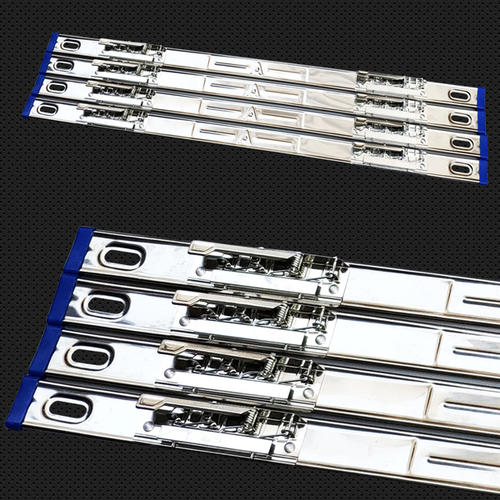现在完成时的构成和用法
绝世美人儿
968次浏览
2021年01月21日 12:41
最佳经验
本文由作者推荐
中国范-
现在完成时的构成和用法
I
.
现在完成时
1.
概念:过去发生或已经完成的动作对现在造成的影响或结果,或从过 去已经开
始,持续到现在的动作或状态。
2.
时间状语:
yet,already,just,never,ever,so
far,by
now,since+
时间点,
for+
时间段,< br>recently, lately, in the past few years, etc.
3.
基本结构:主语
+have/has +p.p
(过去分词)
+
其他
4.
否定形式:主语
+have/has + not +p.p
(过去分词)
+
其他
5.
一般疑问句:
have
或
has
。
6.
例句:
I've written an article.
The countryside has changed a lot in the past few years.
II
.
现在完成时
1.
2.
现在完成时的构成:助动词
have/has +
过去分词
现在完成时的主要用法
⑴表示从过去某一时刻开始 并一直延续到现在的动作或事情
,
但动作或事情现在
已经结束。
Someone has just turned off the light.
有人刚把灯关了。
I have already finished my homework.
我已经完成了家庭作业。
⑵表示从过去某一时刻开 始并一直延续到现在的动作或事情
,
但动作或事情可能
仍在继续。
I want to see how much the place changed since I saw it last.
我想看看从上次见到那地
方以来它发生了多大变化。
I have learnt English for more than ten years.
我已经学了
10
多年的英语。
⑶表示人曾有过或到目前为止从未有过的经历
.
Have you ever been to the Summer Palace?
你曾去过颐和园吗
?
I have never had a car.
我从未有过汽车。
⑷现在完成时还常与句型
This is the first time
…,
It
’
s the first time
…连用。
This is the first time he has driven a car.
这是他第一次开车。
⑸现在完成时和最高级连用表示到现在为止是最…的。
It
’
s the most boring film I
’
ve ever seen.
这是我看过的最令人厌烦的电影。
3.
现在完成时的时间状语
⑴
常与不确定的时间状语连用,
如
:already, never, ever, just, yet, before, up to now,
so far, for the last few weeks
等
,
表示“到目前为止”所发生的动作
.
⑵还可以和包括现在在内
(
到说话时仍未结束
)
的
,
表示一段时间的状语连用,
如
:now, today, this morning (afternoon, evening, week, month,
year), these days, since,
for a long time
等
.
⑶
since
短语 或从句表示过去的动作延续至今,
since
之后的时间为一点。
Mr. Smith has worked here since 1984.
1984
年以来,史密斯先生一直在这工作。
He’s learned about 5,000 English words since he went to college.
他上大学以来大约学了五千个英语单词。
⑷
for
短语表示动作延续多长时间,
for
的宾语为时间段。
We have known each other for twenty years.
我们认识有二十年了。
I haven
’
t seen her for a long time.
我好久没有见到她了。
⑸
just, lately, recently
是完成时的时间状语,
just now
有
a moment ago
之意,是
一般过去时的时间状语。
The train has just arrived.
火车刚到。
Did you see Joan just now?
你刚才看到琼了吗?
Have you heard from your family lately/recently?
你最近收到家人的来信了吗?
⑹
in the past few years
意思是
“过去几年来”
,
可作现在完成时的时间状语;
in the
past
意思是“在过去”
,常作一般过去时的时间状语。
Great changes have taken place in my hometown in the past few years.
过去几年来,我的家乡发生了很大的变化。
Where did you work in the past?
你过去在哪里工作?
⑺
even since then
与
from then on (after that)
都有“打那以后” 之意,前者是完成
时的时间状语,后者常用作一般过去时的时间状语。
She
’
s lived here ever since then.
打那以后,她一直住在这。
I didn
’
t hear of Jim from then on/after that.
打那以后,我就没有吉姆的消息。
⑻
before
泛指 “以前”时,可用于现在完成时中;
ago
表示“现在的一段时间以
前”
,是 一般过去时的时间状语。
I
’
ve never been to Japan before.
我以前没去过日本。
She went to Japan a year ago.
她一年前去了日本。
⑼、
ever
和
never
也是现在完成时常见的时间状语。前者意思是“曾经”
,多见< br>于疑问句或否定句中;后者意思是“从来没有”
,表示全部否定。
“
Have you ever seen the film?” “No. I have never seen it.”
“你曾经看过这部影片吗?”
“没有,
从来没看过。
”
Nobody in our class has ever been there.
我们班没有人去过那。
⑽
already
和
yet
常见于现在完成时中,有“已 经”之意。前者一般用在肯定句
中,后者用在疑问句中。
yet
在否定句中有“还”之 意。
“
Has the bus left yet
”
?
“汽车开走了吗
?
”
“
Yes. It has already left.
”
“是的,已经开走了。
”
“
No. It hasn
’
t left yet.
“不,还没有开走。
”
⑾
so far(
到目前为止
)
,
these days(
这些天
)
也是现在完成时常见的时间状语。
So far, no man has travelled farther than the moon.
到目前为止,
还没有人到月球以外旅行。
What have you done these days?
这些天来,你做了什么事?
⑿
now, today, this morning, this year
等有时可以用现在完成时中,
以表示到说话时
这一时间尚未结束。
I have learned how to swim now.
我现在终于学会了怎样游泳。



